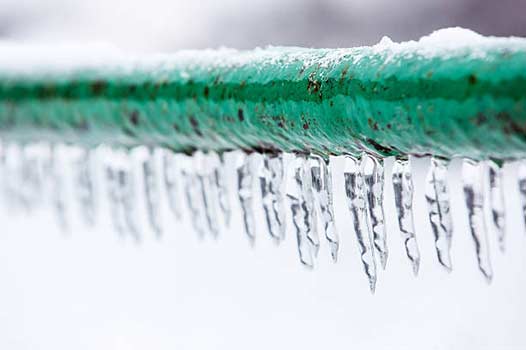
As winter approaches, homeowners in Chicago face the dreaded threat of frozen pipes. Frozen pipes not only disrupt the daily routines of residents but can also lead to costly repairs and property damage. Therefore, it is crucial for Chicago homeowners to take preventive measures and know how to handle frozen pipes effectively.
The Dangers of Frozen Pipes
Frozen pipes can cause a multitude of problems for homeowners. When water freezes inside the pipes, it expands, putting pressure on the walls of the pipes. This pressure can lead to cracks or even bursts in the pipes, resulting in leaks and significant water damage once the water thaws and starts flowing again. The damage caused by frozen pipes can be extensive, requiring costly burst pipe emergency repairs and cleanup efforts.
Preventive Measures
Taking preventive measures is the best way to avoid the hassles and expenses of dealing with frozen pipes. Here are some steps that Chicago homeowners can take to prevent their pipes from freezing:
Insulate Exposed Pipes
One of the most effective ways to prevent pipes from freezing is insulating them properly. Pay special attention to pipes in unheated areas such as basements, garages, and crawl spaces. Use pipe insulation sleeves or heat tape to protect the pipes from extreme temperatures. Adequate insulation acts as a barrier, reducing the chances of encountering frozen pipes significantly.
Seal Air Leaks
Identify any drafts or air leaks near pipes and seal them. Cold air can easily enter through gaps and cracks, affecting the temperature of the pipes. Add weatherstripping or caulk around windows, doors, and crawl spaces to keep the cold air out and maintain a warmer environment around the pipes.
Let Faucets Drip
During extremely cold weather, allowing faucets to drip helps prevent pipes from freezing. Moving water is less likely to freeze compared to stagnant water. By letting the faucets drip slightly, you keep the water flowing, lowering the risk of frozen pipes.
Keep the Thermostat Set
Maintaining a consistent indoor temperature is crucial to preventing frozen pipes. During colder months, don’t set the thermostat too low or switch off the heating when you’re away from home. Instead, keep the temperature above 55°F (13°C) to ensure that the pipes stay warm enough, even in freezing conditions.
Open Cabinet Doors
If you have pipes located within kitchen or bathroom cabinets, open the doors to allow warm air to circulate around them. This technique is particularly useful for pipes that are against exterior walls, as they are more susceptible to freezing. By promoting air circulation, you effectively raise the temperature around the pipes and reduce the risk of freezing.

Frozen pipes can wreak havoc on a home and cause significant damage if not addressed promptly.
What to Do If Your Pipes Freeze
Despite taking preventive measures, sometimes pipes can still freeze. If you find yourself with frozen pipes, it’s essential to know the proper steps to minimize damage and get the water flowing again. Here’s what you should do if your pipes freeze:
Keep the Faucets Open
When you suspect that your pipes have frozen, open the faucets connected to those pipes. This will relieve the pressure and give the water somewhere to go when it starts to thaw.
Apply Heat to the Frozen Pipe
Using a handheld hairdryer or a space heater, carefully apply heat to the frozen section of the pipe. Start by warming the pipe near the faucet and work your way towards the frozen area. Avoid using open flames or high temperatures that could damage the pipe. Once the pipe has thawed, keep the faucet open to allow the water to flow freely.
Call an Emergency Plumber
If you’re unable to thaw the pipe or if you suspect that it has burst, it’s essential to call an emergency plumber immediately. An experienced emergency plumber in Chicago has the expertise and specialized tools to handle frozen and burst pipes safely. They can assess the situation, make the necessary repairs, and help prevent future occurrences.
In Summary
Frozen pipes can wreak havoc on a home and cause significant damage if not addressed promptly. By taking preventive measures and knowing what to do in case of frozen pipes, Chicago homeowners can protect their properties and avoid costly repairs. Remember to insulate exposed pipes, seal air leaks, let faucets drip during extreme cold, and maintain a consistent indoor temperature. And if your pipes do freeze, keep the faucets open, apply gentle heat, and contact a professional plumber for assistance. With these precautions and actions, you’ll be well-prepared to tackle frozen pipes and ensure a smooth winter season for your home.